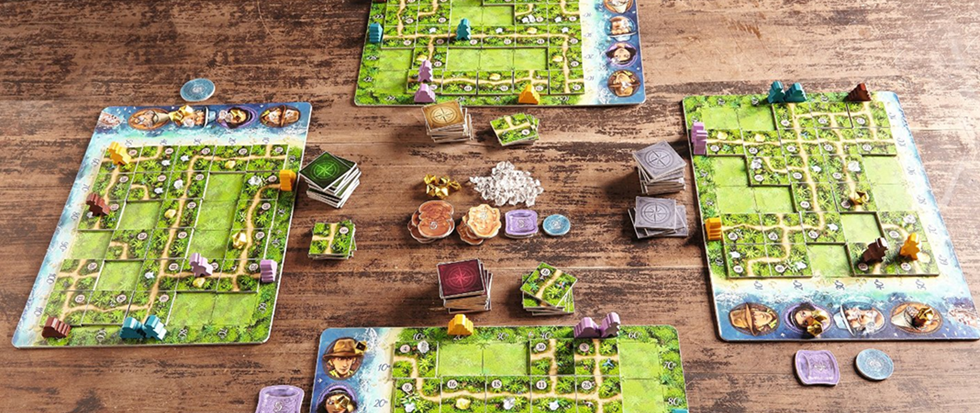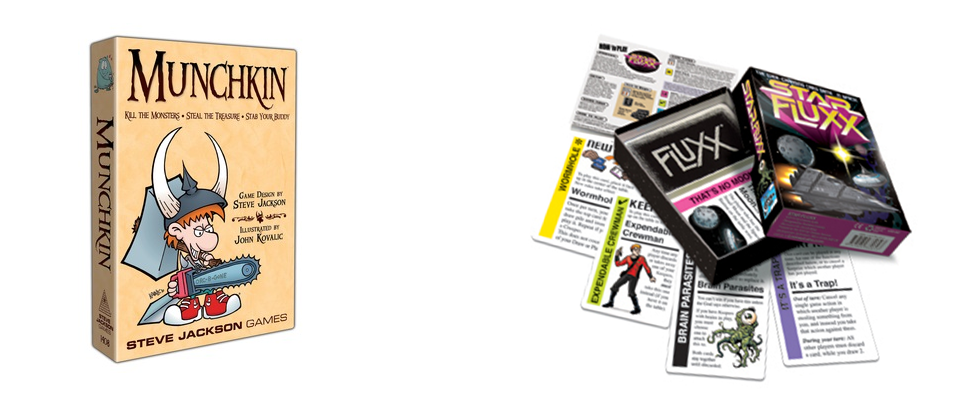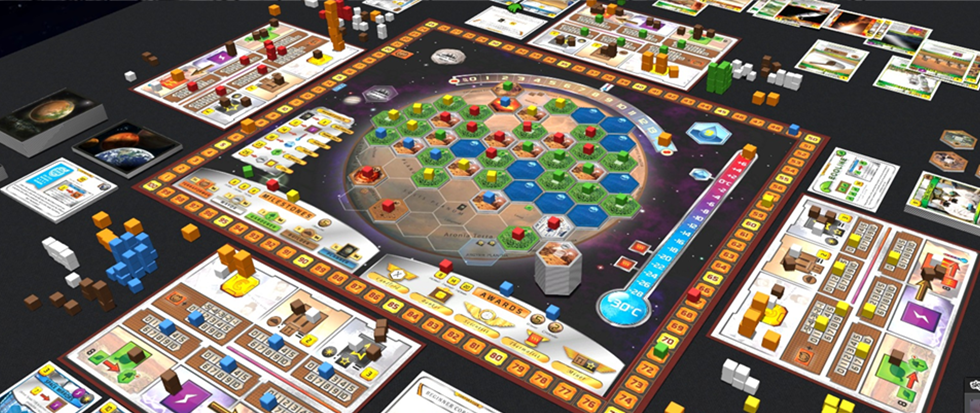
Together Alone
Games that feature little player interaction usually sneak a little bit into them by having players get in each other’s way. You can see this dynamic in worker placement games, where putting a worker at an action spot blocks it off for other players. There’s also games like Splendor, where someone will claim a card that another person wanted. The point is that these little design wrinkles make you feel like the other people around the table matter to some degree, that you’re playing with them as opposed to playing in proximity of them. Without something to make you feel like you’re playing together, then you might as well be playing by yourself, which ends up being the fatal flaw of games like Karuba.
On the surface, Karuba is a race to see who can get the most treasure the fastest. You play as a team of adventurers that have to navigate a jungle to try to find matching-colored temples as fast as you can. You do this by taking a tile at random and placing it on your player board. These tiles have roads depicted on them, with anywhere between two and four different branches. The goal is to make a path through the jungle by connecting these roads so that your explorers can travel on them and make their way to the temples.
The trick here is that only one player draws tiles at random. Everyone else must then find the numbered tile that the drawing player picked and place it at the same time. This way, Karuba is entirely fair and even due to the fact that everyone is placing the same tile. But this is also the crux of the problem with Karuba, as that interaction is the extent to which players ever brush up against each other. When you place your tile, nothing anyone else does has any effect on what you’re doing. Nothing alters the game state or lets you mess other players up. It’s just you and your personal player board. Every difficulty you have is your fault and your fault alone, which is kind of a drag when taken to the extreme that Karuba takes it.
The other major mistake that Karuba makes is having all the action happen on your own personal player board and nowhere else. Having such a low amount of interaction would have felt more like a game you all were playing together if there was a centralized space in which you were playing, perhaps even one giant jungle board. This way, you can at least see how everyone else is doing in a space you’re all competing in. As it currently stands, Karuba is a game that feels a lot like you’re doing your homework and comparing your results at the end.
Karuba wants to be a compact Indiana Jones-style adventure in a box where you’re competing to get the relics and treasures first, but the excitement comes as you trip over other people and mess each other up. Instead of the thrill of a race, we get a tile-laying game where you make a path by yourself and then see who got the most treasure the fastest at the end. Other players aren’t necessary for Karuba to function, and indeed, the game plays like a solitaire game that happens to let you play concurrently with others. The solitary nature of Karuba means the game feels static even as you’re clearing a path towards treasure. Such a journey should feel dynamic and competitive, two things that Karuba are most certainly not. All it really makes you feel is alone in your not-so-thrilling adventure.





